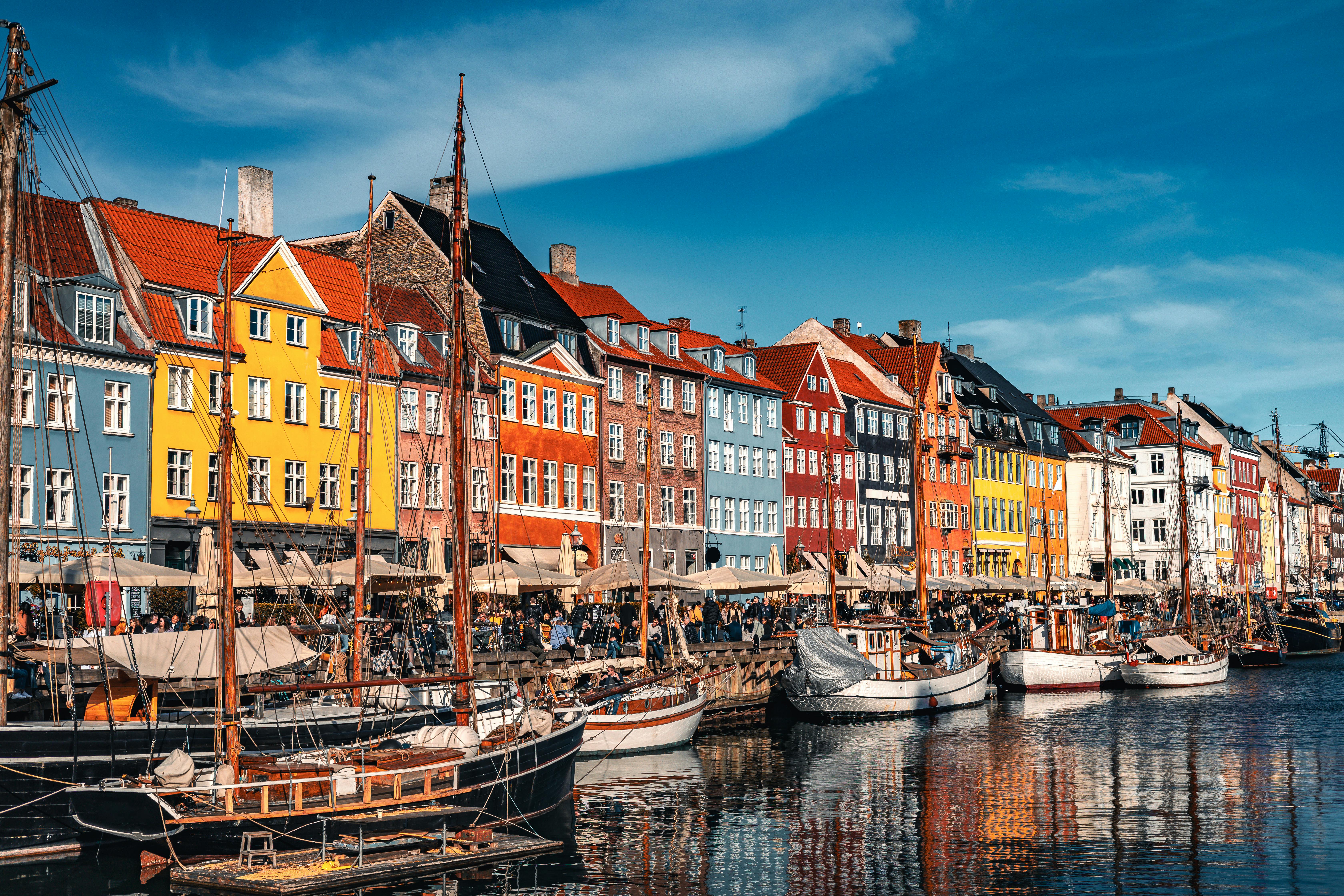Denmark
Studying in Denmark is truly a dream for many international students. So, you need to learn a bit more about the vast country of Denmark before embarking on the journey. Denmark is located in Northern Europe, primarily on the Jutland Peninsula and several islands. The country’s capital, Copenhagen, is situated on the eastern coast of the island of Zealand. It is bordered to the south by Germany. Denmark has a highly developed economy, known for being a strong welfare state and having a high standard of living. It ranks as one of the world’s most prosperous and least corrupt countries. Denmark retains its currency, the Danish krone (DKK).
The country consistently ranks high globally and in quality of life largely due to its emphasis on work-life balance, environmental sustainability, and social equality. Denmark is known for its comprehensive welfare system, which includes free healthcare, free education, and generous social benefits such as unemployment support and parental leave.
Education System in Denmark:
The educational system encourages innovation, critical thinking, and collaboration. Denmark is the home to many top-ranked universities such as the University of Copenhagen and Aarhus University which are highly valued and recognized globally. Denmark provides an education system that allows their students to maintain themselves and their personalities as individuals- providing freedom of thinking leading to great innovations and ideas. It also has its focus on providing international and domestic students with the best quality resources to help them reach their maximum potential and have a flourishing academic and future career. To become more accessible to all, many programs are also offered in English to attract international students.
Why pursue education in Denmark?
- High-Quality Education
- World-Class Institutions
- Cutting-Edge Facilities
- Incredible Research Opportunities
- Wide Range of Resources
- International Student Support Services
- Work Opportunities
- Affordable Tuition Fees
- Scholarship Opportunities
- Post-Graduation Work Permit
- Strong Economy
- Multicultural Environment
- Safe and Welcoming Society
Scholarship Opportunities in Denmark:
Studying in Denmark can be more affordable through various scholarship opportunities. Here is a brief listing of some scholarship options for international students:
- Merit-Based scholarship
- University-Specific Scholarships
- Scholarships for Specific Fields (such as engineering, science, or social sciences).
- Research Grants and Scholarships
- Private Foundations and Organizations provided Scholarships
- Financial Aid
To apply:
- Start Early: Research scholarship options well before application deadlines to ensure you have enough time to prepare.
- Check Eligibility: Make sure to meet the specific eligibility criteria for each scholarship.
- Prepare Required Documents: Gather necessary documents such as academic transcripts, letters of recommendation, and personal statements.
- Highlight Achievements: Clearly outline your academic achievements, work experience, and motivation for studying in Denmark in your application.
Admission Requirements:
- Undergraduate (Bachelor’s) Programs: Relevant High School certificate (Secondary education equivalent to A Levels).
- Graduate (Master’s and Ph.D.) Programs: A relevant bachelor’s degree is needed for higher-level qualifications.
- English proficiency: Met through (IELTS: 6.0 overall (no band less than 6.6-7.5), TOEFL.
Requirements to Apply:
- Application Fee: Most universities charge a fee for submitting applications.
- Academic Transcripts: Relevant academic proof and certifications from previous institutions.
- Curriculum vitae (CV): CV or Resume outlining your educational and work history.
- Letters of Recommendation: Usually 2-3 letters from professors or professionals familiar with your academic or work experience.
- Personal Statement: Motivation letter explaining your interest in the program and your academic and career goals.
- Student Visa: Students need to apply for a student visa (residence permit) after receiving an offer of admission.
Visa Requirements:
- Acceptance to a Danish Institution
- Valid Passport
- Proof of Financial support (bank statements, sponsor letters, etc.)
- Health Insurance
- Proof of Accommodation
- Application Form
- Proof of Identity
- Application Fee
- Academic and Personal Documents
- Biometric Information
Always check the official websites for the latest information, as visa requirements and processes may change.
Living Costs:
Understanding the living costs as an international student is a crucial factor when considering residing and studying in Denmark. Here is a brief listing of the basic costs:
- Accommodation: Shared apartments: DKK 2,500 – DKK 4,500
- Private apartments: DKK 5,000 – DKK 8,500
- University Housing: Some universities offer dormitory options that may be more affordable, ranging from DKK 2,500 – DKK 4,000 per month.
- Food and Groceries: Average monthly grocery expenses DKK 2,000 – DKK 3,000. Increase up to DKK 100 – DKK 150 if eating out.
- Transportation: Public transport (bus, train, metro) can average up to DKK 300 – DKK 600 depending on the city.
- Utilities: Monthly utilities (electricity, heating, cooling, water, garbage): DKK 1,000 – DKK 1,500
- Internet: Approximately DKK 300 – DKK 500
- Personal Expenses: DKK 500 – DKK 1,000 (vary from person to person)
Leaving out tuition fees, the total estimated cost of living for an international student adds up to around DKK 8,000 – DKK 12,000. This may vary for each individual.
Choosing Denmark for your academic career proves to be a wise pick as it offers a unique blend of high-quality education, innovative teaching methods, and a welcoming multicultural environment. Their strong emphasis on research and practical experience provides students with the skills necessary for today’s job market. Moreover, the strong economy, and safe and stable living environment while being diverse and multicultural create a strong sense of community – allowing it to be suitable for international students. With a vibrant student life, rich cultural experiences, and beautiful landscapes, Denmark provides an enriching environment that promotes both personal and academic growth.
